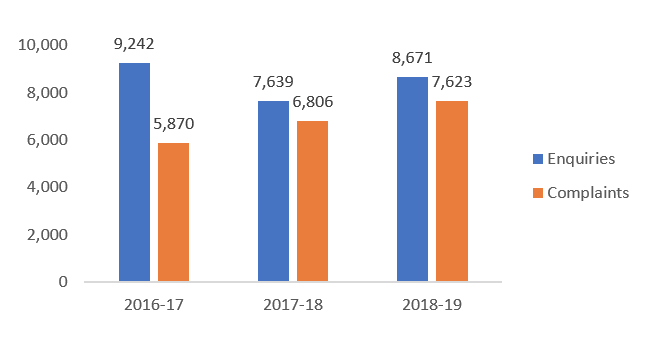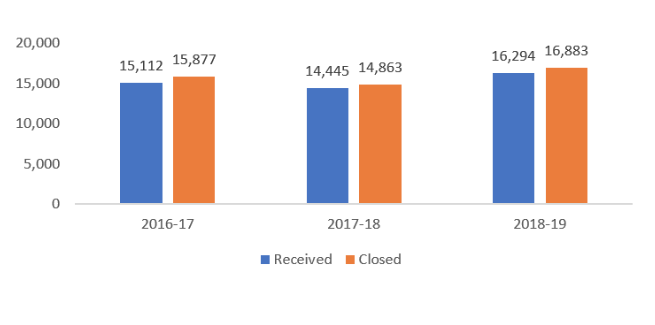Illustration: Istock
Better complaints handling

GOVERNANCE

Richard Blakeway
Housing Ombudsman
The COVID-19 outbreak is presenting challenges for residents and landlords. So far the Housing Ombudsman has been able to maintain a normal service and we are talking to landlords to understand how their housing services and complaint handling could change in response to the crisis. At some point normal life will return and one possibility is a spike in complaints depending on the length of the crisis.
Over the past five years, the volume of formal complaints received by the Housing Ombudsman has increased by an average of 17% each year to more than 2,200 investigations in 2018-19. Alongside this, the Housing Ombudsman supports around 8,000 complaints handled by landlords each year. This increase has led us to think hard about the service we offer – how can we meet the rising demand and expectations for the service?
Our response can be summarised in three goals:
- A reduced timescale for investigations;
- Increasing contact with the customer at critical stages; and
- Using the individual complaint to consider how we can improve services for all.
Let’s look at each in turn.
Reducing decision-making timescale I am aware that the very nature of the complaints we deal with can have a profound impact on an individual’s wellbeing. Therefore, reducing our decision times is critical. This is the issue Ombudsmen are challenged about most.
Our decision times are averaging six months – significantly faster than a few years ago – and we plan to halve it over the next two years. This needs to be done in a planned way, with more resource, while simultaneously allowing us to maintain the quality of our decision-making.
However, our determination rates also include the time taken by landlords to submit evidence to us. Here, performance by landlords can be variable. We want to work with landlords to address this by ensuring we are clear about what evidence is really required, but also through landlords respecting submission deadlines. Without addressing this, dispute resolution will be unnecessarily prolonged and trust in the process will be undermined.

Increasing customer contact
The way we resolve disputes is also important. In most cases a full investigation – and the spotlight this brings – is necessary. But I strongly believe that mediation can play a role too. A current trial, which didn’t set out to increase the volume of mediated disputes, has resulted in 37% of cases being resolved through this route. This compares to 5% in a typical year.
Whatever the route to resolution, the start of an investigation and when a decision is about to be issued are key moments. As such, we are planning to contact both parties at those points to discuss their case and explain our decision before we issue the report. This is a key part of improving our customers’ experience.
“In most cases a full investigation – and the spotlight this brings – is necessary. But I strongly believe that mediation can play a role too”
Supporting dispute resolution
Finally, we have a clear remit to support dispute resolution by others as well as ourselves. This results in facilitation by us, while complaints are still in the landlord’s process. 80% of complaints received by us are being closed at that stage – and we can go further.
We intend to publish a new complaint handling code, which promotes consistency and seeks to raise the bar on dealing with complaints. This code would be backed by changes that would allow us to issue failure notices when a complaint becomes stuck in the landlord’s process. At the heart of this code will be setting the right culture and encouraging the right behaviours.
We also want to do more to share the learning and insight from our work, supported by a dedicated team. This year we published our first quarterly Insight Report of data, casework and lessons and we will shortly produce a report on leaseholder issues. We will also conduct more systemic investigations with potential referral to the Regulator of Social Housing, maintaining a clear distinction between our roles.

This work matters to customers and I am committed to fulfilling our role of promoting positive change within the sector, alongside resolving individual disputes.


